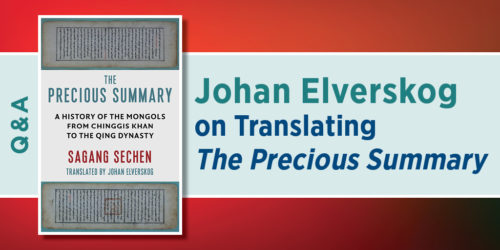Obituary for Masuda Sayo
 The following is a post from G. G. Rowley, translator of Sayo Masuda’s Autobiography of a Geisha.
The following is a post from G. G. Rowley, translator of Sayo Masuda’s Autobiography of a Geisha.
Masuda Sayo died on 26 June 2008, a few months short of her eighty-third birthday. Her end was blessedly swift: she was admitted to hospital on 8 June and died less than three weeks later. The cause of her death was liver cancer.
Liver problems are something of an occupational hazard for geisha, since although they never eat in front of customers, they do participate in the drinking games that are de rigueur at zashiki or geisha parties. Masuda described the ghastly physical effects of over-indulgence in saké in chapter 8 of her memoir, but by the end of her story, she had successfully quit drinking. When we first met, she apologized for not joining us in a toast with our evening meal at the hot spring where we were spending the night. “I wrote about my liver, remember?” she reminded me. “Sorry, but I can’t drink anything at all.” Later, Masuda told me that her geisha Elder Sister Karuta had become an alcoholic—a sad irony after the efforts she had made to persuade Masuda to give up drinking. Karuta ran a restaurant until three years before her death in the mid-1990s. She never married and had no children; but she lived, worked, and died only fifteen minutes walk from where Masuda set up house after her final return to Nagano. “I sobbed aloud for half an hour at Elder Sister Karuta’s funeral,” she recalled. “Everyone else was so embarrassed, but I didn’t care; I felt that my own life was over.”
The photograph of Masuda (see above) and her translator was taken at a coffee shop in the town in Nagano where Nishimura Yumiko and I went to visit Masuda in September 2004. Her petite stature is immediately apparent, and there is a resilience evident in her firm yet gentle gaze. She didn’t miss much, and she didn’t hesitate to say what she thought. As the three of us soaked in the bath together at the hot spring, she looked me up and down with a proprietary air and observed, “You must’ve been quite a beauty when you were young! (Anta wakai toki wa kitto bijin datta deshô).” Students of Japanese grammar will note the use of the particle wa, always implicitly contrastive—then as opposed to now; and the form of the verb datta, emphatically past tense.
Although Masuda and I continued to talk on the telephone from time to time, we never met again. Naturally enough, she was determined not to be pitied, not to be thought needy or poor. Every autumn she would send me several kilograms of expensive, wonderfully fragrant grapes from the vineyards in Nagano, more than my husband and I could possibly eat by ourselves. Her final gift to me was her “last treasure (saigo no takaramono),” a large fan used when performing Japanese dance. In the laboriously hand-written letter that accompanied the fan, Masuda explained:
This dancing fan is the one I used when I danced long, long ago, with all my heart, for the man I loved. No matter what happened, I never parted with it. Because it kept me going. I was quite a romantic, don’t you agree? And I was a fool, too. Still, long ago I had a passing acquaintance with the geisha arts, and I took a certain pride in dancing in front of large numbers of customers. And now look at me, what a wreck! For the sake of this one dancing fan, I lost everything. I suffered, how I suffered. And by the time I pulled myself together again, you see what I’d become.…
Shall I tell you how to feel full when you haven’t got anything to eat? You lick a bit of salt, and then you drink two cups of water and lie down, that’s all. To think that anyone who’d done that would want to become a proper lady, even just for five minutes. It’s enough to make you laugh, isn’t it.
Still, it’s good to dream. And it’s good to love. It’s better to have feelings than not to have them—even if they’re gray and monotonous, or dull and leaden—don’t you think?
I am boring on, aren’t I, forgive me.
It’d be good to meet again. Please give my regards to Nishimura-san if you see her.
Do take care,
Sayo
Goodbye, Sayo. It was a privilege to meet you in the pages of your memoir. Thank you for having enough faith in me to allow me to tell your story.
October 2008
2 Responses
Leave a Reply
You must be logged in to post a comment.




I just finished her book, and it was so moving. The words were wonderfully written and I felt like I was there watching it take place. It’s a shame to see that she passed on several years ago, but thankfully she has immortalized herself by sharing her life story with us. Rest in peace, Sayo. Maybe one day I’ll get to visit your “secret place” and climb the zelkova tree.
I have read the book twice, and to my surprise, I could always find something interesting and intriguing about her. As much as I would like her to give up her life as geisha, she picked herself up and challenged the world as if to say “here I am, you all may have abandoned me but I will never give up”.
Thank you for your fighting spirit, Miss Sayo. How I wish to have a privilege to meet you in person. Your story of your life, I should not forget. Good bye Miss Sayo.